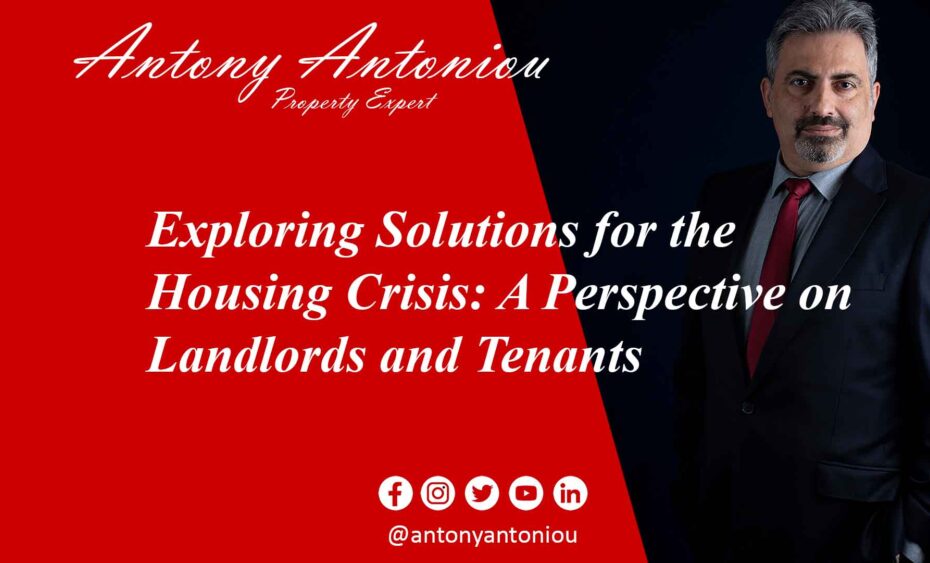Exploring Solutions for the Housing Crisis: A Perspective on Landlords and Tenants
Today I wanted to delve into the topic of the housing crisis and offer some suggestions that may spark debate. While these suggestions might be divisive, one thing we can all agree on is that there is a pressing crisis in the housing sector. Landlords are being pushed out, and this is detrimental to both landlords and tenants.
The levelling up debate:
The ongoing debate about leveling up, currently going through Parliament, may not bring about the desired improvements. One crucial aspect of the rental market is the mobility it provides to the population. Unfortunately, the proposed measures, such as open-ended tenancies requiring landlords to go to court to recover their property for personal use or sale, fail to address this issue. This approach proves particularly challenging for accidental landlords who need to rent out their homes temporarily due to short-term contracts in other parts of the country or the world. Moreover, the lengthy and cumbersome court process can hinder landlords from reclaiming their properties, as illustrated by a personal case involving a friend’s apartment damaged by a leak.
The option of renting to local authorities long term:
In light of these challenges, it’s worth considering an alternative approach. Reflecting on my experiences, I would have eagerly embraced the opportunity to lease my properties on a long-term basis to local authorities at the local housing allowance rate, even if it meant earning less than what the open market would offer. The appeal was the stability and predictability of knowing the rental income and its schedule, with minimal effort apart from ensuring adequate landlord’s coverage and maintaining the property. Although the local housing allowance might lag behind market rates, finding a middle ground could be a step in the right direction.
Of course, it’s important to acknowledge that rental prices have surged far beyond the local housing allowance in the Southeast. This has left many landlords struggling. However, we can all agree that finding a balanced solution is necessary to prevent the exodus of landlords, encourage property investment, and ensure secure, long-term homes for tenants without exploitation.
The impact of BTL Lenders:
Another critical aspect that needs addressing is the sale of properties with tenants in place. Buy-to-let lenders often complicate these sales, leading to mass evictions. Legislation should be enacted to ensure that buy-to-let lenders base their decision solely on the property’s value, rather than the tenant’s status. This would eliminate the need to evict tenants to facilitate property sales. Furthermore, if local authorities were responsible for managing and renting these properties, ownership would become less relevant since all properties would adhere to the same standards and regulations, providing tenants with a secure home and landlords with a reliable income.
Naturally, implementing such changes would involve a significant shift, and it cannot happen overnight. Nonetheless, striving toward this goal could be a viable solution in the long run. However, it seems unlikely that the government will take action, as evidenced by the lack of housing-related measures in the recent budget. Instead, they encourage individuals to invest in the stock market, diverting funds from secure brick-and-mortar assets into a more volatile and uncertain realm.
Now, I understand that not everyone would be willing to shift their investment focus from property to the stock market. Personally, I believe that an investment solution that increases the availability of rental properties, provides security for landlords, and ensures stable housing for tenants would be a significant step forward. In recent years, the government has introduced measures that hinder landlords, such as discontinuing direct rent payments and making landlords responsible for immigration checks. Additionally, landlords face the risk of having rent clawed back if a tenant’s benefit claim is investigated, even if the issue is unrelated to the landlord.
The end of paying rent directly to landlords caused problems:
These burdensome responsibilities placed on landlords create unnecessary stress and can lead to financial difficulties. It is crucial to understand that tenants generally don’t set out to fall behind on rent. However, when circumstances pile up, even a small outstanding amount can quickly snowball into an insurmountable debt. It’s equally essential to acknowledge the landlords’ perspective. Many landlords merely wish to invest in properties, rent them out, and generate a stable income without the additional complications.
The government’s tendency to shift its problems onto landlords is akin to expecting supermarket customers to perform cashier duties and then subjecting them to humiliating bag checks on the way out. It’s an unfair burden that places responsibility on the wrong party. The government should focus on addressing the root causes rather than creating unnecessary hurdles for landlords.
Conclusion:
In conclusion, while it may seem like an uphill battle, I firmly believe that a path forward exists. It won’t be easy, but history has shown that what appears impossible can become reality when someone steps up to the challenge. I invite you to share your thoughts on these ideas. Do you believe it’s a fool’s errand, or is it inevitable that larger corporations will dominate the housing market? The concentration of water, utility, and supermarket ownership among corporations, which pushed out small businesses, serves as a cautionary tale. Thank you for joining me today, and I look forward to continuing this discussion in the future. Bye for now!

